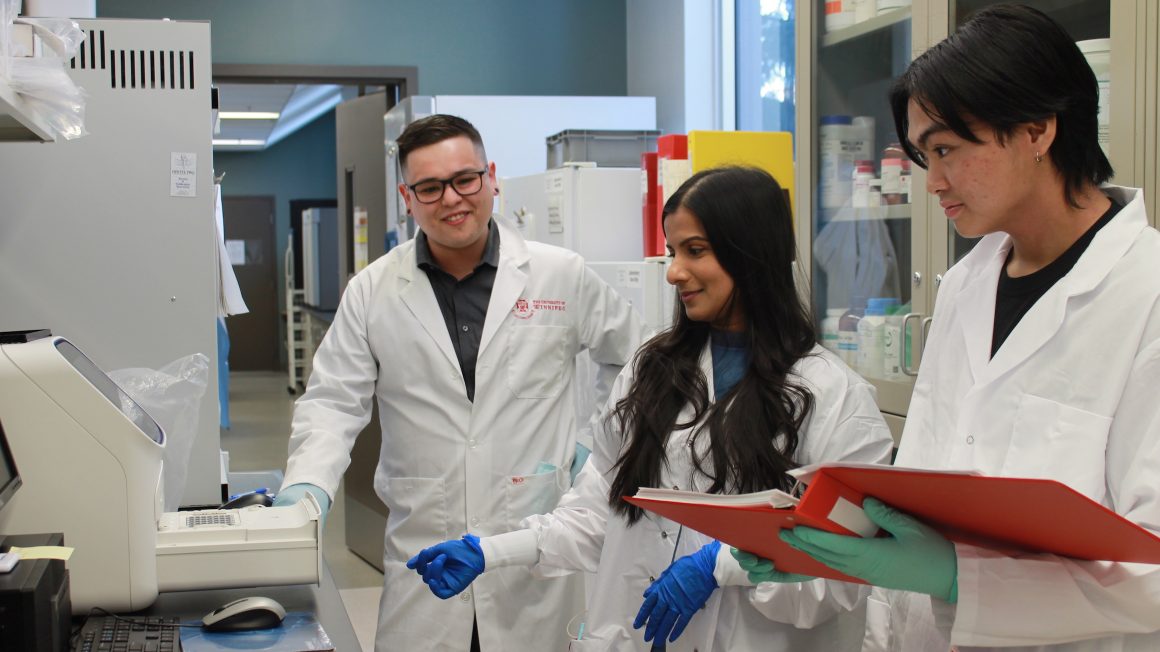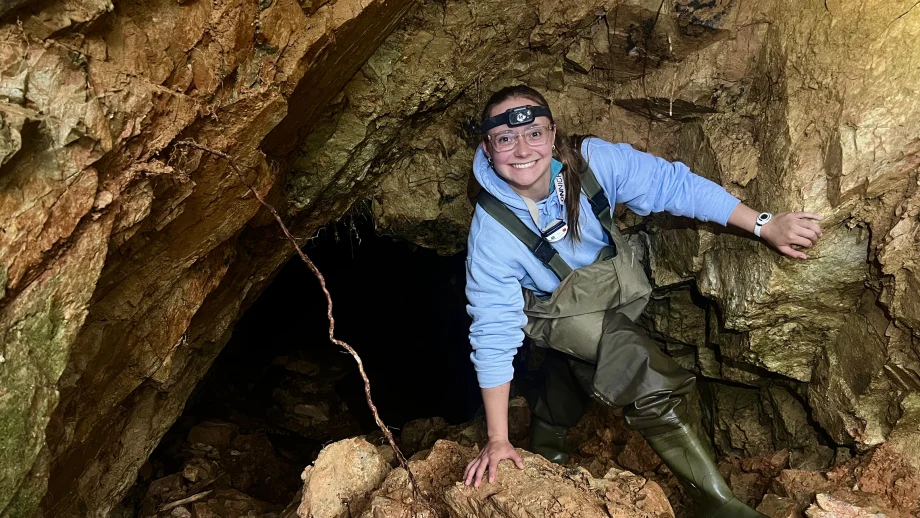In Canada, 22 to 24 per cent of women are diagnosed with obesity at the time of conception. In Manitoba, that rate is considerably higher than the national average at 28 per cent.
“A lot of a baby’s immune system at the very beginning of life comes straight from the mom’s milk. Milk also contains hormones and growth factors that are tailored for different stages of development, and a complex microbiome that helps establish baby’s gut.
Dr. Sanoji Wijenayake
Maternal obesity not only impacts the health of mothers, it also has profound effects on the baby’s development during key periods of early life, such as the gestational and lactational time periods. Babies born to mothers with obesity often exhibit metabolic dysfunction (type II diabetes, high blood pressure, above average body weights), inflammation, and behavioral irregularities.
Dr. Sanoji Wijenayake, Assistant Professor with The University of Winnipeg’s Department of Biology, has received a Manitoba Medical Service Foundation Operating Grant to research the neurodevelopmental effects of maternal obesity exposure and to characterize the functional roles of milk exosomes, a new class of nanovesicles abundant in mammalian milk.
According to Dr. Wijenayake, breastfeeding is proposed as an effective solution to combat the risks of obesity in children.
But, Dr. Wijenayake says very little is known about the cellular and molecular mechanisms underlying this protective effect, and even less is known about how maternal obesity shapes the bioactive components of milk.
The main objective of her work is to characterize the role of maternal milk as a biological regulator of early postnatal development and growth. Her lab will use cell culture techniques, an obesity-centric rodent model, microscopy, advanced molecular and biochemistry toolkits, and Next Generation Sequencing technologies.
Supporting undergraduate research
Corey Sanderson and Fran Obtial are two undergraduate students who are starting work in the Wijenayake’s lab this summer.
Sanderson started his studies at UWinnipeg in 2016, and has completed a BSc in Biology, BA in Psychology, and is working on a BSc in Neuroscience. He was drawn to the University thanks to the state-of-the-art Richardson College for the Environment and Science Complex.
After learning about Dr. Wijenayake’s research during his fourth-year biology class, he contacted her about getting involved with her research.
“I thought this type of research and its findings could impact Indigenous health and communities,” Sandersonsaid, adding he has a deep interest in biology, health, medicine, research, and Indigenous community health.
As an undergraduate student, it was important for him to combine his in-class learning with real research opportunities.
“I think the University does a great job at making sure everyone who attends UWinnipeg gets a good understanding that there is research out there, and that it is important to the greater of society and academics,” Sanderson said.
Obtial started studying at UWinnipeg in 2019, majoring in neuroscience.
They met Dr. Wijenayake after going to a Department of Biology mixer in the fall to figure out who to work with for their honour’s thesis next academic year.
“Dr. Wijenayake was there and talked about her research, and it really piqued my interest,” Obtial recalled. “I contacted her, and she kindly welcomed me into her lab.”
As an undergraduate student, it was important for them to gain research experience because the skills learned can be applied to many different career paths.
Obtial specifically noted problem-solving, time management, writing proposals, and communications skills as big aspects of research work that translate to all areas.
“Research is not for everyone, but these research experiences can make you rethink your path,” they said. “For example, I did not see myself doing any research during my undergraduate degree because the pandemic makes it difficult and professors are kind of intimidating to reach out to, but now I am pursuing graduate school.”
Dr. Wijenayake is passionate about equity, diversity, inclusion, and Indigenization of science, technology, engineering, and mathematics, and plans to recruit students belonging to underrepresented groups into her research program at UWinnipeg to help build the next generation of scientists.
“When I was an undergraduate, I didn’t see many professors that looked like me. So, now it is my responsibility to try and change that.”
Milk is more than just food
When talking about maternal milk, Dr. Wijenayake says most people just think of it as food for babies.
However, it’s much more than just a great form of nutrition. In fact, it’s also a great source of immunity.
“A lot of a baby’s immune system at the very beginning of life comes straight from the mom’s milk,” she explained. “Milk also contains hormones and growth factors that are tailored for different stages of development, and a complex microbiome that helps establish baby’s gut.”
Recently, a group of small, fat-coated nanovesicles known as milk-derived exosomes were discovered in breastmilk. This is one of the main things Dr. Wijenayake is studying.
“These tiny nanovesicles transport nucleic acids (microRNAs), small proteins, enzymes, and fats from mothers to their offspring during feeding. They are also extremely stable, survive digestion, and are excellent at migrating across complex cell barriers, including the gut lining and the blood brain barrier,” she explained.
Milk exosomes have tremendous therapeutic potential to be used as effective drug carriers that surpass the limitations of currently used drug delivery vehicles (synthetic liposomes).
“This was a really cool finding because now we know that even after babies are born, the moms continue to shape their growth trajectories using these tiny, little fat droplets,” she said. “Milk exosomes are also sensitive to stress.
“Maternal obesity is a potent early life stress that may change the amount of these tiny little droplets in milk, as well as their cargo. Again, this is an area that requires immediate research, and I am excited to delve into this new field.”





